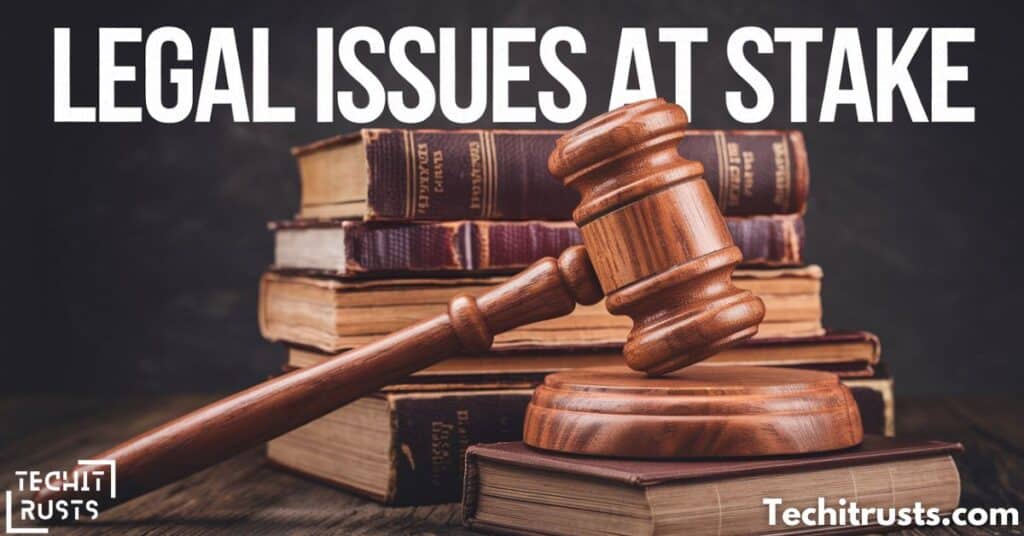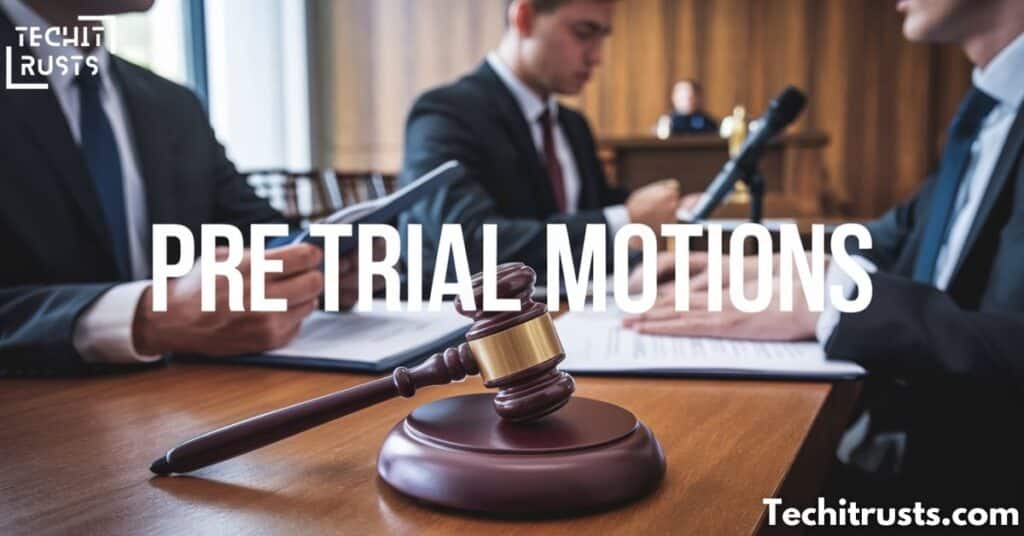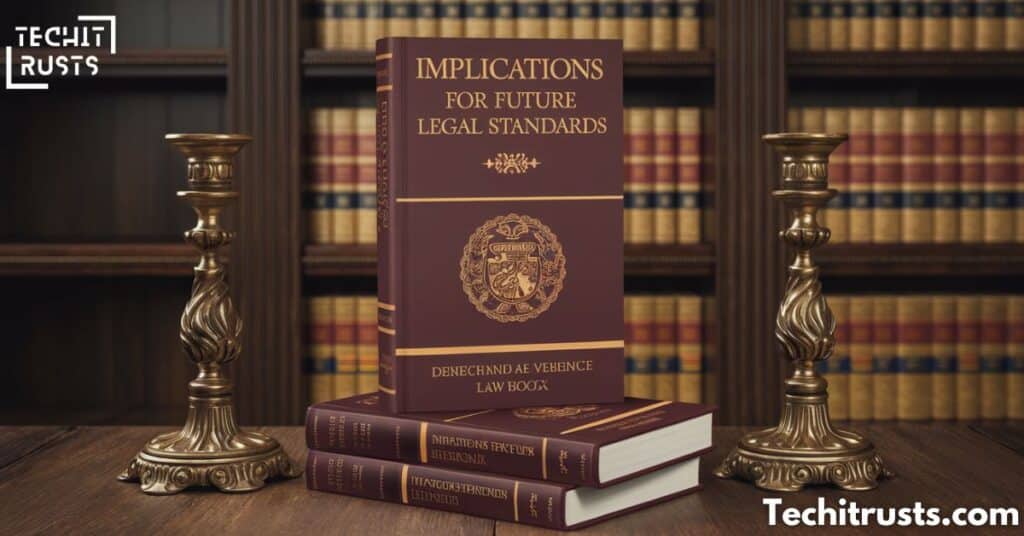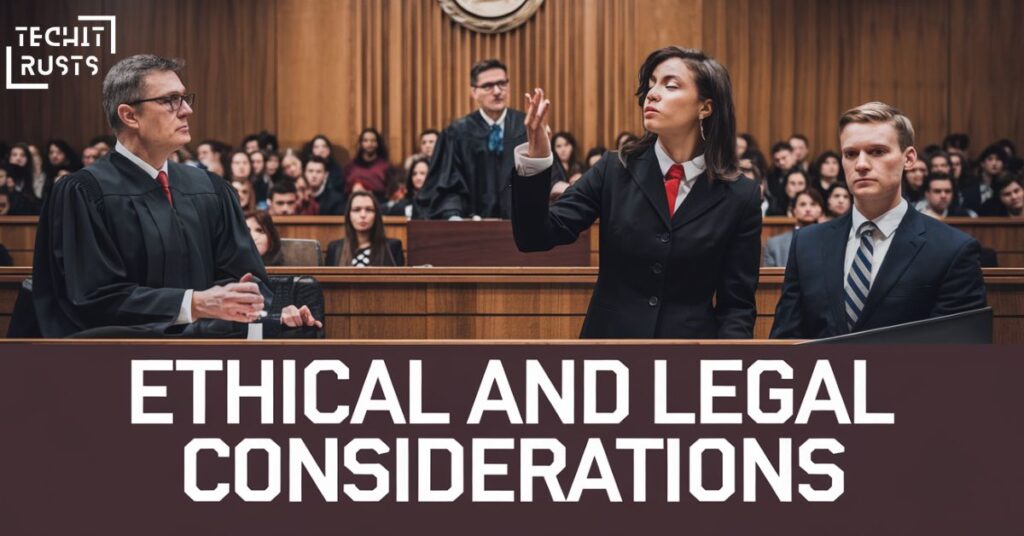The Latham Lawsuit Combs Carterr has emerged as a significant legal battle with profound implications for business ethics and legal standards. This article explores the case’s background, the parties involved, legal claims, and the broader industry implications, offering insights that are crucial for understanding its impact.
Background of the Latham Lawsuit
The backdrop of the Latham lawsuit is rooted in a complex partnership that began with high expectations. Latham, a well-known entity in its industry, sought to leverage the strengths of Combs and Carterr to achieve mutual growth. However, as the partnership progressed, concerns about financial integrity and ethical conduct led to a breakdown in trust, culminating in legal action.
Contextual Overview
Latham entered into a strategic alliance with Combs and Carterr, envisioning a collaborative effort that would enhance their market positions. Initially, the partnership showed promise, marked by ambitious plans and shared goals. However, underlying issues soon surfaced, prompting Latham to conduct internal audits that revealed discrepancies in financial reporting.

These audits raised alarm bells, leading Latham to question the legitimacy of the partnership. The discovery of irregularities, including unexplained expenditures and inflated revenue projections, became the foundation for serious fraud allegations against Combs and Carterr.
Timeline of Events
- Initial Partnership: Latham partners with Combs and Carterr, aiming for growth and innovation.
- Financial Irregularities Discovered: Internal audits reveal discrepancies in financial reporting, raising red flags.
- Pre-Trial Motions Filed: Latham files motions to address fraud claims, while Combs and Carterr mount defenses.
- Trial Commences: The case moves to court, with both sides presenting their arguments and evidence.
This timeline reflects the escalating tension between the parties, underscoring the complexity of the situation and the seriousness of the allegations.
Key Parties Involved
Understanding the roles of the key players in the Latham lawsuit is vital for grasping the intricacies of the case.
Latham
Latham is a prominent company known for its innovative products and strong market presence. Its decision to partner with Combs and Carterr was driven by the potential for shared resources and expertise. However, the subsequent allegations of fraud have placed Latham in a precarious position, raising concerns about its operational integrity and financial stability.
The company faces not only the challenge of recovering from potential losses but also the risk of long-term damage to its reputation. As the plaintiff, Latham must navigate the complexities of legal proceedings while protecting its interests.
Combs
Combs is an experienced entrepreneur with a successful track record in the industry. Initially, he was viewed as a valuable asset to the partnership, bringing expertise and connections. However, as the lawsuit progressed, Combs found himself embroiled in serious fraud allegations, jeopardizing both his reputation and business relationships.
Combs’s defense centers around disputing the allegations, asserting that financial discrepancies were the result of accounting errors rather than intentional wrongdoing. However, his ability to clear his name will hinge on the court’s evaluation of evidence presented during the trial.
Carterr
Carterr, a relatively newer entity in the industry, sought to establish itself through this partnership. The lawsuit has placed Carterr in a challenging position, as it faces scrutiny over its role in the alleged misconduct. As the case unfolds, Carterr must contend with the dual pressures of defending its reputation and addressing the financial implications of the allegations.
Carterr’s defense strategy likely focuses on demonstrating a lack of intent to defraud and emphasizing its commitment to ethical business practices. However, the legal proceedings will test the company’s resilience and adaptability in the face of serious claims.
Legal Issues at Stake

The Latham lawsuit raises significant legal issues that could set important precedents for future business dealings.
Fraud Allegations
At the core of the case are serious fraud allegations. Latham accuses Combs and Carterr of intentionally misrepresenting financial information to secure a more favorable position in the partnership. These allegations are not only damaging to the accused but also raise critical questions about accountability in business practices.
Proving fraud requires demonstrating that the defendants knowingly engaged in deceptive practices. This involves analyzing financial documents, emails, and communications to establish intent. The implications of a successful fraud claim are profound, potentially leading to severe financial penalties and long-term reputational damage for Combs and Carterr.
Breach of Contract
In addition to fraud, the breach of contract claims are central to the lawsuit. Latham contends that Combs and Carterr failed to adhere to the terms outlined in their partnership agreement. This claim emphasizes the importance of clearly defined roles and responsibilities in any business arrangement.
Latham argues that the irregularities in financial reporting constitute a direct violation of the partnership’s contractual obligations. This claim is bolstered by evidence of specific provisions in the contract that were allegedly ignored. The outcome of this claim could lead to a dissolution of the partnership and further financial repercussions for the defendants.
Additional Legal Claims
Beyond fraud and breach of contract, Latham has raised other legal claims related to negligence and mismanagement. These claims highlight a broader concern about accountability and ethical standards within business partnerships.
The legal landscape surrounding this case serves as a reminder that businesses must prioritize ethical considerations and maintain transparency in their dealings to avoid similar disputes.
Court Proceedings and Significant Rulings
Court Proceedings:
The Latham lawsuit has gone through several important phases. It began with pre-trial motions, where both sides asked the court to dismiss certain claims. During the discovery phase, each party shared evidence and information. This step was crucial for building their cases.
Significant Rulings:
Throughout the trial, the court made key decisions that shaped the case. These rulings included what evidence could be presented and how to interpret the contracts involved. Such decisions can greatly influence the jury’s final verdict. The outcomes may also set important precedents for future cases.
The legal proceedings surrounding the Latham lawsuit have involved several phases, each with its own challenges and rulings.
Pre-Trial Motions
Before the trial commenced, both parties filed numerous pre-trial motions to shape the legal framework of the case. Latham sought to dismiss certain defenses raised by Combs and Carterr, arguing that their claims lacked merit. The court’s decisions on these motions played a pivotal role in defining the parameters of the trial.

Significant rulings during this phase included the admission of key evidence that supported Latham’s claims. This evidence included internal communications and financial records that illustrated discrepancies in reporting. The court’s willingness to allow such evidence indicated a potential lean towards Latham’s narrative, heightening the stakes for Combs and Carterr.
Discovery Phase
The discovery phase was crucial for both sides, as it allowed them to gather evidence to support their respective claims. During this period, Latham uncovered vital documents that reinforced its fraud allegations. This included emails, financial statements, and transaction records that painted a troubling picture of the partnership’s financial integrity.
The discovery process revealed not only inconsistencies in financial reporting but also patterns of behavior that suggested a lack of transparency from Combs and Carterr. This phase of the trial highlighted the importance of thorough documentation and transparency in business practices, setting the stage for the arguments presented in court.
Trial Proceedings
The trial itself was marked by intense scrutiny of the evidence and testimonies presented. Latham opened with a compelling narrative, outlining the timeline of events and showcasing the evidence gathered during the discovery phase. The strategy aimed to establish a clear link between the alleged fraudulent activities and the financial repercussions faced by Latham.
Combs and Carterr countered with their defense, arguing that the financial discrepancies were the result of honest mistakes rather than malicious intent. Their strategy involved calling witnesses and presenting evidence that challenged Latham’s interpretation of the facts. The trial highlighted the complexities of proving intent in fraud cases, as the burden of proof rested squarely on Latham’s shoulders.
Significant Rulings
Throughout the trial, the court made several significant rulings that shaped the direction of the proceedings. One notable ruling involved the admissibility of expert testimony regarding financial practices. The court allowed expert witnesses to discuss standard practices in the industry, providing context for the jury to assess the actions of both parties.
Another key ruling involved the introduction of evidence that demonstrated Combs and Carterr’s prior knowledge of financial irregularities. This evidence further solidified Latham’s position, suggesting that the defendants had not only acted negligently but potentially with intent to deceive.
Implications for Future Legal Standards
The Latham lawsuit may change how courts approach similar legal disputes in the future. A ruling in favor of Latham could set a precedent for stricter definitions of fraud and breach of contract. This might lead to increased scrutiny of business practices and contracts. Future plaintiffs may use this case as a benchmark to support their claims.

As a result, businesses could face greater legal responsibilities to ensure transparency and adherence to contractual obligations. The case may also influence lawmakers to consider new regulations for business dealings. Enhanced legal standards could encourage more ethical practices across industries. Overall, the outcome may reshape the landscape of commercial law.
Legal Precedents
The outcome of this case may set important legal precedents regarding accountability and transparency in business dealings. If Latham prevails, it could signal a shift towards stricter scrutiny of financial practices in partnerships. This would encourage companies to adopt more rigorous compliance measures and prioritize ethical conduct.
Furthermore, the case may serve as a cautionary tale for businesses about the ramifications of failing to uphold contractual obligations. The legal community will likely examine the rulings and reasoning of the court to assess how they might apply to future disputes.
Industry-Wide Effects
Beyond the individual parties, the Latham lawsuit could prompt broader changes in the industry. Companies may adopt more comprehensive internal controls and enhance their due diligence processes to prevent similar legal challenges.
As businesses become more aware of the legal landscape, the emphasis on contract management and transparency will likely increase. This shift could foster a more ethical business environment, as companies seek to protect themselves from the financial and reputational risks associated with legal disputes.
Financial and Reputational Impact
The financial consequences and reputational damage resulting from the lawsuit are significant for all parties involved.
Financial Consequences
If Latham wins the lawsuit, Combs and Carterr could face substantial financial penalties. Latham has sought damages for lost revenue and the costs incurred in rectifying the situation. Estimates suggest that potential damages could reach millions, depending on the court’s rulings and the severity of the findings against the defendants.
In addition to direct financial penalties, the lawsuit could impact the future profitability of Combs and Carterr. The reputational damage associated with the fraud allegations may deter potential clients and partners, limiting their business opportunities.
Reputational Impact
Regardless of the outcome, all parties involved are likely to experience lasting reputational damage. For Latham, this could mean a tarnished brand image as the allegations come to light. The company may face challenges in maintaining client trust and securing future partnerships.
For Combs and Carterr, the impact on their reputations could be even more severe. The allegations of fraud could hinder their ability to attract new clients or investors, as potential partners may hesitate to engage with companies under legal scrutiny.
Ethical and Legal Considerations

The Latham lawsuit raises important ethical questions about business conduct and accountability.
Ethical Implications
At its core, the case highlights the need for transparency in business operations. As allegations of fraud emerge, the ethical responsibilities of all parties come under scrutiny. Businesses must prioritize honesty and integrity to build trust with partners and consumers.
The case serves as a reminder that ethical lapses can have dire consequences, not just for the individuals involved but for the organizations they represent. Companies that fail to uphold ethical standards may find themselves facing legal action, reputational damage, and financial losses.
Broader Industry Implications
The outcome of the lawsuit could influence ethical standards across industries. Companies may feel pressured to adopt stricter ethical guidelines to prevent similar legal challenges. This shift could foster a more ethical business environment, encouraging organizations to prioritize accountability and transparency in their dealings.
Lessons Learned
Several key lessons learned can be derived from the Latham lawsuit, offering insights for businesses and legal professionals alike.
Importance of Transparency
The case underscores the critical role of transparency in business dealings. Companies should maintain clear communication and accurate reporting to avoid misunderstandings and legal disputes. Transparency builds trust with partners and consumers, ultimately strengthening business relationships.
Contract Management Best Practices
Effective contract management is essential for mitigating risks associated with business partnerships. Businesses must ensure that all parties fully understand their contractual obligations and adhere to them. Regular reviews of contracts can help identify potential issues before they escalate into legal disputes.
Due Diligence
Thorough due diligence is vital when entering partnerships. Companies should conduct comprehensive background checks and financial audits to mitigate risks associated with fraudulent activities. By ensuring that all parties involved are credible and trustworthy, businesses can protect themselves from potential legal ramifications.
Future Implications and Outlook
The Latham lawsuit may have lasting effects on legal and business practices, shaping the future landscape of partnerships.
Influence on Legislation
If the court’s rulings lead to significant changes, we could see new legislation aimed at enhancing accountability in business partnerships. This shift could foster a more transparent business environment, encouraging organizations to prioritize ethical practices.
Long-Term Industry Effects
In the long run, the Latham lawsuit may encourage businesses to adopt more rigorous compliance measures, affecting how partnerships are structured and managed. Companies may invest in training programs that emphasize ethical conduct and transparent communication, creating a culture of accountability within their organizations.
Frequently Asked Questions
What Is the Latham Lawsuit About?
The Latham lawsuit centers around allegations of fraud and breach of contract between Latham and its partners, Combs and Carterr, highlighting significant legal and ethical considerations.
Who Are the Main Parties Involved?
The main parties in the lawsuit include Latham, a well-established company, and Combs and Carterr, who are both accused of misconduct in their partnership.
What Are the Potential Consequences?
The potential consequences include significant financial penalties for Combs and Carterr, reputational damage for all parties, and potential changes to industry standards and practices.
Conclusion
The Latham lawsuit involving Combs and Carterr represents a pivotal moment in the landscape of business ethics and legal standards. As the case unfolds, it offers valuable insights into the importance of transparency, contract management, and due diligence in fostering healthy business relationships.
The outcomes could reshape the industry, prompting companies to reevaluate their practices to avoid similar legal challenges.
>>>Read Also: Armaid Complaint Sony Beverly Slate Lawsuit: A Deep Dive Into The Legal Battle

Ashi is the site admin for “techitrusts.com” and specializes in writing within the journal category. If you need more detailed information about his background or work, feel free to ask!